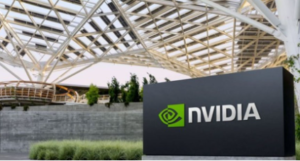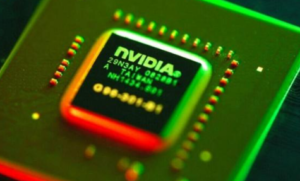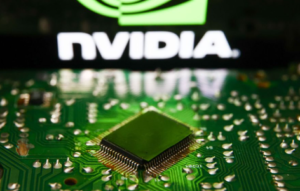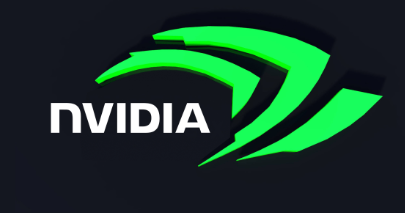Riyadh, Saudi Arabia — September 13, 2024 — Saudi Arabia is poised to gain access to Nvidia’s cutting-edge H200 chips, a pivotal step that will propel the kingdom into the forefront of artificial intelligence (AI) innovation. This breakthrough is expected to occur within the next year, according to Abdulrahman Tariq Habib, Deputy CEO of the Saudi Data and AI Authority (SDAIA).
These powerful chips will be instrumental in advancing Saudi Arabia’s AI ambitions, enabling the kingdom to run the most sophisticated AI models, including those behind OpenAI’s revolutionary GPT-4. Habib’s remarks were made during the Global AI Summit (GAIN) in Riyadh, underscoring the nation’s commitment to becoming a global AI powerhouse.

Saudi Arabia’s AI Leap: Unlocking Advanced Capabilities
Securing Nvidia’s H200 chips will not only bolster Saudi Arabia’s computational capabilities but also mark a major milestone in its ambitious Vision 2030 initiative. This national plan aims to diversify the economy and make AI a cornerstone of its growth, contributing up to 12% of the kingdom’s GDP by 2030.
“This access will mean a lot for Saudi Arabia. It will open doors for enhanced computational power and capacity-building within the kingdom,” said Habib. He highlighted that beyond acquiring cutting-edge technology, Saudi Arabia has been investing heavily in human talent and data infrastructure over the last three years.
Nvidia’s AI Chips: Powering Saudi Arabia’s Vision 2030
Nvidia’s H200 chips are the most advanced in the market, designed to power the next generation of AI and machine learning models. Access to these chips is expected to foster increased collaboration between Saudi Arabia and the U.S., further strengthening business ties and enabling the development of innovative AI-driven solutions across various sectors.
Saudi Arabia’s AI drive is backed by significant financial investments, with the country’s $925 billion Public Investment Fund (PIF) leading the charge. The PIF has ambitious plans to boost the kingdom’s AI ecosystem, including exploring a $40 billion AI-focused fund in partnership with U.S. firms like Andreessen Horowitz.

U.S. Export Restrictions and Saudi Arabia’s Strategic Relationships
The potential access to Nvidia’s chips comes despite stringent U.S. export controls designed to limit advanced technology exports, particularly to countries with close ties to China. Saudi Arabia, which maintains a strategic relationship with Beijing, has been navigating these restrictions carefully. The U.S. government has imposed specific licenses for chip exports to Middle Eastern nations, including Saudi Arabia, as part of its broader national security strategy.
However, ongoing dialogue between Saudi Arabia and the U.S. suggests a collaborative approach to AI development. “The easing of these restrictions shows the positive momentum in U.S.-Saudi AI cooperation and acknowledges Saudi Arabia’s emerging role as a leader in AI and investment,” Habib stated.
As Saudi Arabia gears up to access Nvidia’s advanced AI chips, the kingdom is positioning itself as a major player in the global AI landscape. With strong backing from Vision 2030, Saudi Arabia is set to transform its economy, harnessing the full potential of AI to drive innovation and economic diversification.
The kingdom’s growing focus on building AI infrastructure and talent will be critical as it seeks to lead the way in AI development, solidifying its position as a leader in the digital economy. The upcoming access to Nvidia’s H200 chips is just one step in Saudi Arabia’s journey toward AI dominance, signaling a new era of technological advancement and global competitiveness.
Saudi Arabia’s Vision 2030: AI to Contribute 12% of GDP
The kingdom’s bold Vision 2030 initiative aims to transform its economy, reducing dependence on oil by investing heavily in technology, particularly artificial intelligence. AI is expected to contribute a staggering 12% to Saudi Arabia’s gross domestic product (GDP) by 2030, positioning the nation as a global AI powerhouse.
This massive AI push is backed by Saudi Arabia’s $925 billion Public Investment Fund (PIF), which is leading efforts to build a comprehensive AI infrastructure. In addition to gaining access to Nvidia’s AI chips, Saudi Arabia is negotiating a $40 billion AI investment fund with U.S. venture capital firms such as Andreessen Horowitz. These investments are expected to create new AI-driven industries, boost innovation, and generate thousands of jobs for Saudi nationals.
The Power of Nvidia’s H200 Chips: A Game-Changer for AI
Nvidia’s H200 chips represent the pinnacle of AI technology, offering unparalleled processing power essential for training large-scale AI models. These chips are critical for enabling breakthroughs in natural language processing, computer vision, and other cutting-edge AI applications. Securing access to these chips will give Saudi Arabia a competitive edge, allowing it to innovate faster and produce state-of-the-art AI solutions across multiple industries, including healthcare, finance, and energy.
With access to these powerful chips, Saudi Arabia will also enhance its supercomputing capabilities, significantly boosting its capacity to handle complex data sets and develop AI algorithms at an unprecedented scale. This technological leap is expected to position Saudi Arabia as a key player in the global AI race, driving innovation not just within the kingdom, but across the entire Middle East.

Navigating U.S. Export Controls: Strategic Diplomacy at Play
While the U.S. has imposed strict export controls on advanced technology to prevent sensitive technologies from reaching adversarial nations, Saudi Arabia’s diplomatic efforts and strong ties with Washington may lead to an easing of these restrictions. This is particularly significant given Saudi Arabia’s close trade relationship with China, which has raised concerns in Washington.
However, ongoing U.S.-Saudi cooperation in the AI sector suggests that the Biden administration may allow the export of Nvidia’s chips to Saudi Arabia, marking a positive shift in bilateral relations. Habib emphasized that this collaboration highlights Saudi Arabia’s growing influence in the AI space and its potential to become a major global player in AI innovation.
AI Investments to Transform Key Sectors
Saudi Arabia’s access to Nvidia’s H200 chips will have transformative effects on multiple sectors within the kingdom. Key industries such as oil and gas, healthcare, education, and finance are expected to experience significant improvements in efficiency, productivity, and innovation.
- Oil and Gas Industry: Advanced AI technologies will enable more efficient resource extraction, predictive maintenance, and environmental sustainability, furthering the kingdom’s push toward energy diversification.
- Healthcare: AI-driven diagnostics and personalized medicine will revolutionize patient care, improving health outcomes and reducing costs.
- Education: AI-based tools and platforms will provide personalized learning experiences, helping to upskill the Saudi workforce and prepare the next generation for a tech-driven future.
- Finance: AI technologies will enhance financial services through predictive analytics, fraud detection, and automated customer service, driving growth in Saudi Arabia’s burgeoning fintech sector.
Saudi Arabia’s AI Ambitions: A Global Force in the Making
Saudi Arabia’s ambition to lead the global AI revolution is supported by both financial might and a forward-thinking strategy. With the potential acquisition of Nvidia’s high-performance chips, Saudi Arabia is well on its way to becoming a dominant player in the global AI arena. The kingdom’s investments in AI infrastructure, human capital, and data capabilities are positioning it to become a hub for AI innovation, attracting international talent and fostering collaborations with leading AI companies worldwide.
As Saudi Arabia continues to push the boundaries of AI development, its strategic partnerships with U.S. firms and access to Nvidia’s state-of-the-art technology will be crucial in realizing its Vision 2030 goals. The kingdom’s AI ambitions are not just about transforming its own economy but about shaping the future of AI globally.






